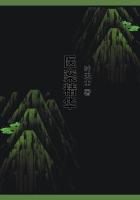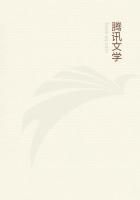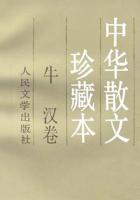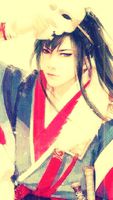From the votive tablets found at Epidaurus, we get a very good idea of the nature of the cases and of the cures. A large number of them have now been deciphered. There are evidences of various forms of diseases of the joints, affections of women, wounds, baldness, gout; but we are again in the world of miracles, as you may judge from the following: "Heraicus of Mytilene is bald and entreats the God to make his hair grow. An ointment is applied over night and the next morning he has a thick crop of hair."
There are indications that operations were performed and abscesses opened. From one we gather that dropsy was treated in a novel way: Asklepios cuts off the patient's head, holds him up by the heels, lets the water run out, claps on the patient's head again. Here is one of the invocations: "Oh, blessed Asklepios, God of Healing, it is thanks to thy skill that Diophantes hopes to be relieved from his incurable and horrible gout, no longer to move like a crab, no longer to walk upon thorns, but to have sound feet as thou hast decreed."
The priests did not neglect the natural means of healing. The inscriptions show that great attention was paid to diet, exercise, massage and bathing, and that when necessary, drugs were used. Birth and death were believed to defile the sacred precincts, and it was not until the time of the Antonines that provision was made at Epidaurus for these contingencies.
One practice of the temple was of special interest, viz., the incubation sleep, in which dreams were suggested to the patients.
In the religion of Babylonia, an important part was played by the mystery of sleep, and the interpretation of dreams; and no doubt from the East the Greeks took over the practice of divination in sleep, for in the AEsculapian cult also, the incubation sleep played a most important role. That it continued in later times is well indicated in the orations of Aristides, the arch-neurasthenic of ancient history, who was a great dreamer of dreams. The oracle of Amphiaraus in Attica sent dreams into the hearts of his consultants. "The priests take the inquirer, and keep him fasting from food for one day, and from wine for three days, to give him perfect spiritual lucidity to absorb the divine communication" (Phillimore's "Apollonius of Tyana," Bk. II, Ch. XXXVII). How incubation sleep was carried into the Christian Church, its association with St. Cosmas and St. Damian and other saints, its practice throughout the Middle Ages, and its continuation to our own time may be read in the careful study of the subject made by Miss Hamilton (now Mrs. Dickens).[18] There are still in parts of Greece and in Asia Minor shrines at which incubation is practiced regularly, and if one may judge from the reports, with as great success as in Epidaurus. At one place in Britain, Christchurch in Monmouthshire, incubation was carried on till the early part of the nineteenth century. Now the profession has come back to the study of dreams,[19] and there are professors as ready to give suggestive interpretations to them, as in the days of Aristides. As usual, Aristotle seems to have said the last word on the subject: "Even scientific physicians tell us that one should pay diligent attention to dreams, and to hold this view is reasonable also for those who are not practitioners but speculative philosophers,"[20] but it is asking too much to think that the Deity would trouble to send dreams to very simple people and to animals, if they were designed in any way to reveal the future.
In its struggle with Christianity, Paganism made its last stand in the temples of Asklepios. The miraculous healing of the saints superseded the cures of the heathen god, and it was wise to adopt the useful practice of his temple.
[18] Mary Hamilton: Incubation, or the Cure of Disease in Pagan Temples and Christian Churches, London, 1906.
[19] Freud: The Interpretation of Dreams, translation of third edition by A. A. Brill, 1913.
[20] Aristotle: Parva Naturalia, De divinatione per somnium, Ch. I, Oxford ed., Vol. III, 463 a.
HIPPOCRATES AND THE HIPPOCRATIC WRITINGS
DESERVEDLY the foundation of Greek Medicine is associated with the name of Hippocrates, a native of the island of Cos; and yet he is a shadowy personality, about whom we have little accurate first-hand information. This is in strong contrast to some of his distinguished contemporaries and successors, for example, Plato and Aristotle, about whom we have such full and accurate knowledge. You will, perhaps, be surprised to hear that the only contemporary mention of Hippocrates is made by Plato. In the "Protagoras," the young Hippocrates, son of Apollodorus has come to Protagoras, "that mighty wise man," to learn the science and knowledge of human life. Socrates asked him: "If . . . you had thought of going to Hippocrates of Cos, the Asclepiad, and were about to give him your money, and some one had said to you, 'You are paying money to your namesake Hippocrates, O Hippocrates; tell me, what is he that you give him money?' how would you have answered?" "I should say," he replied, "that I gave money to him as a physician." "And what will he make of you?" "A physician," he said. And in the Phaedrus, in reply to a question of Socrates whether the nature of the soul could be known intelligently without knowing the nature of the whole, Phaedrus replies:
"Hippocrates, the Asclepiad, says that the nature, even of the body, can only be understood as a whole." (Plato, I, 311; III, 270--Jowett, I, 131, 479.)















